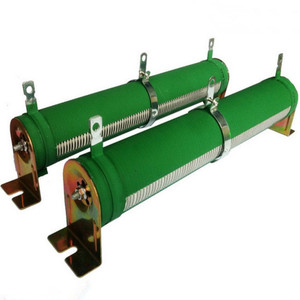ได้รับความนิยมในอุตสาหกรรมของคุณ





ตัวต้านทานฟิล์มคาร์บอน1/6W 1/4W 1/2W 1W 2W 3W 5W ตัวต้านทานคาร์บอนแบบกำหนดเอง
฿0.3726 - ฿0.7452
การสั่งซื้อขั้นต่ำ: 10 ชิ้น
การจัดส่งต่อชิ้น: ฿176.98







ตัวต้านทานฟิล์มโลหะตัวต้านทาน1/8W 1/4W 1/2W 1W 2W 3W 5W 1K 1%
฿223.56 - ฿298.08
การสั่งซื้อขั้นต่ำ: 1 กล่อง
การจัดส่งต่อชิ้น: ฿632.66






ตัวต้านทานฟิวส์แบบลวด1/8W 1/4W 1/2W 1W 2W 3W 5W 1% ทนต่อ5% ที่คดเคี้ยวตัวต้านทานแบบม้วนพันสายไฟ
฿3.73
การสั่งซื้อขั้นต่ำ: 10000 ชิ้น
การจัดส่งต่อชิ้น: ฿10.06







ตัวต้านทานฟิล์มเคลือบโลหะแรงดันสูง1ม. โอห์ม1/4W 1/2W 1W 2W 3W 5W ตัวต้านทาน
฿0.7452
การสั่งซื้อขั้นต่ำ: 1000 ชิ้น
การจัดส่งต่อชิ้น: ฿0.7452







ตัวต้านทานแบบ RX24ตัวอลูมิเนียมสีทองขนาด1000W 8โอห์มตัวต้านทานกำลังสูง100โอห์ม500W 1000W 10R 500R 100R
พร้อมส่ง
฿5.97 - ฿36.52
การสั่งซื้อขั้นต่ำ: 100 ชิ้น
การจัดส่งต่อชิ้น: ฿42.11







RXG28 เรือประเภทอลูมิเนียมความต้านทาน 60W 40R 50 โอห์ม 90 โอห์ม 120 โอห์มสูงแปลงความถี่ตัวต้านทาน
฿48.44 - ฿59.62
การสั่งซื้อขั้นต่ำ: 5 ชิ้น
การจัดส่งต่อชิ้น: ฿424.01






80W 20RJตัวต้านทานเบรคไฟฟ้าเซรามิก
พร้อมส่ง
฿70.80 - ฿81.97
การสั่งซื้อขั้นต่ำ: 1 ชิ้น
การจัดส่งต่อชิ้น: ฿459.03






หน้าแปลน1000วัตต์100โอห์มRfต้านทาน
พร้อมส่ง
฿2,272.79 - ฿2,384.57
การสั่งซื้อขั้นต่ำ: 1 ชิ้น
การจัดส่งต่อชิ้น: ฿424.76






5KW 200โอห์ม High Power ระบายความร้อนด้วยน้ำตัวต้านทาน
฿1,862.94 - ฿7,451.76
การสั่งซื้อขั้นต่ำ: 10 ชิ้น






นำตัวต้านทานฟรี B59008C0120A040รัศมี250OHM ผ่านเซ็นเซอร์อุณหภูมิหลุมเทอร์มิสเตอร์ PTC ที่มีคุณภาพดี
฿32.05
การสั่งซื้อขั้นต่ำ: 500 ชิ้น






Lorida โอห์ม 2K4 10 3W 2K5 105 90 K 1300 47 400K ตัวต้านทานฟิล์ม
฿0.3726 - ฿1.12
การสั่งซื้อขั้นต่ำ: 100 ชิ้น
การจัดส่งต่อชิ้น: ฿17.89






คลื่นกําลังสูง 3500 วัตต์โอห์มตัวต้านทานเบรก 50 วัตต์ถึง 10kW ตัวต้านทานแบบลวดพัน 48 โอห์ม
฿588.69 - ฿644.58
การสั่งซื้อขั้นต่ำ: 1 ชุด
การค้นหาที่เกี่ยวข้อง:






In Stock SMD 33 Ohms 100 mW 0603 5% Thick Film Resistors RC0603JR-0733RL
฿0.3726 - ฿3.73
การสั่งซื้อขั้นต่ำ: 1 ชิ้น






Rx20สายไฟ1K 100R 100W ตัวต้านทานตัวแปร0.01 ~ 10K โอห์มตัวต้านทานปรับความต้านทานการควบคุมเซรามิกคงที่
฿80.11
การสั่งซื้อขั้นต่ำ: 2 ชิ้น






ตัวต้านทาน0R โอห์ม,1R ถึง10เมตร Res 10K 100ตัวต้านทาน1/4W 1206 5% ตัวต้านทานชิป1206
฿0.0746 - ฿0.0857
การสั่งซื้อขั้นต่ำ: 1000 ชิ้น




ตัวต้านทานเบรกแบบลวดพันกําลังสูงเคลือบ 3.3 โอห์ม 2500w ตัวต้านทานบาดแผลลวด
พร้อมส่ง
฿670.29 - ฿782.07
การสั่งซื้อขั้นต่ำ: 1 ชิ้น
การจัดส่งต่อชิ้น: ฿1,380.82






ตัวต้านทานฟิล์มคาร์บอนแบบฟิล์มโอห์มแบบ1/2W 0.5W 1% 1R สินค้ามาใหม่
฿0.0373 - ฿0.0746
การสั่งซื้อขั้นต่ำ: 1 ชิ้น






Rx20 Wirewound 1K 100R 100W Variable Resistor 0.01~ 10K Ohm Fixed Adjustable Resistor Ceramic Control Resistance
฿80.11
การสั่งซื้อขั้นต่ำ: 2 ชิ้น



YMC ตัวต้านทานชิป SMD 50ชิ้น/ล็อต2512,5% 0R-1M R001 R010 R100 R020 1R 1K 10K 10R K 1M Ohm 50 100R 100
฿3.73
การสั่งซื้อขั้นต่ำ: 1 ชิ้น






เทอร์มิสเตอร์ NTC สีดำชนิดแผ่นดิสก์15d-15เทอร์มิสเตอร์ NTC ช่องแช่แข็ง15โอห์ม
฿2.99 - ฿3.36
การสั่งซื้อขั้นต่ำ: 1 ชิ้น






TDK Epcos B59052D1080A40 Cross สกรู PTC จำกัดอุณหภูมิ Sensor Thermistor PTC D1052 90C 100โอห์มสำหรับอินเวอร์เตอร์อุตสาหกรรม
฿18.63 - ฿24.22
การสั่งซื้อขั้นต่ำ: 2000 ชิ้น






ใหม่ RC0402FR-07301KL 0402 ตัวต้านทาน RES 301K OHM 1% 1/16W วงจรรวม - ส่วนประกอบอิเล็กทรอนิกส์ชิป IC
฿0.0187 - ฿0.0373
การสั่งซื้อขั้นต่ำ: 1 ชิ้น






0201/0402/0603/0805/1206 SMD ตัวเก็บประจุตัวต้านทานตัวอย่างชุดเต็มของส่วนประกอบ
฿372.59 - ฿2,049.24
การสั่งซื้อขั้นต่ำ: 1 ชิ้น






ตัวต้านทานปรับสายเซรามิค100 400 500 1000W 2000W 5000W 8omh W 100ohm W เบรค
พร้อมส่ง
฿70.80 - ฿81.97
การสั่งซื้อขั้นต่ำ: 1 ชิ้น
การจัดส่งต่อชิ้น: ฿459.03






5KW แรงดันไฟฟ้าสูงระบายความร้อนด้วยน้ำสำหรับอุปกรณ์กระจายเสียง
฿1,862.94 - ฿7,451.76
การสั่งซื้อขั้นต่ำ: 10 ชิ้น






In Stock 47K OHM 1% 1/16W 0402 Chip Resistors RC0402FR-0747KL
฿0.3726 - ฿1.87
การสั่งซื้อขั้นต่ำ: 10 ชิ้น



YMC ตัวต้านทานแบบชิป50ชิ้น,ตัวต้านทานแบบชิป2512 2W R001 R002 R003 R004 R005 R006 R008 R010 R012 R015 R020 R025 R030 R050 1%
฿3.73
การสั่งซื้อขั้นต่ำ: 1 ชิ้น






ลวดบาดแผลตัวแปรตัวต้านทาน Resistor Resistor ตัวต้านทาน100W 400W 500W 1000วัตต์2000W 5000W 8Omh 100Ohm สูง Rheostat RX20เซรามิค
฿80.11
การสั่งซื้อขั้นต่ำ: 2 ชิ้น






Wire Wound Variable Resistor Braking Resistor 100W 400W 500W 1000Watt 2000W 5000W 8Omh 100Ohm High Power Rheostat RX20 Ceramic
฿80.11
การสั่งซื้อขั้นต่ำ: 2 ชิ้น






ใหม่เดิมRK73H1JTTD1000F 0603 ตัวต้านทานRES 100 OHM 1% 1/8Wวงจรรวม-ส่วนประกอบอิเล็กทรอนิกส์ชิปIC
฿0.0373 - ฿0.1118
การสั่งซื้อขั้นต่ำ: 1 ชิ้น






Rx20สายไฟ1K 100R 100W ตัวต้านทานตัวแปร0.01 ~ 10K โอห์มความต้านทานการควบคุมเซรามิกตัวต้านทานคงที่หรือปรับได้
พร้อมส่ง
฿70.80 - ฿81.97
การสั่งซื้อขั้นต่ำ: 1 ชิ้น
การจัดส่งต่อชิ้น: ฿459.03






ตัวต้านทานแรงดันสูง5W 10K โอห์ม
พร้อมส่ง
฿40.99 - ฿74.52
การสั่งซื้อขั้นต่ำ: 20 ชิ้น
การจัดส่งต่อชิ้น: ฿183.32












ตัวต้านทาน wireWound คุณภาพสูง 75 โอห์ม
พร้อมส่ง
฿193.75 - ฿223.56
การสั่งซื้อขั้นต่ำ: 50 ชิ้น
การจัดส่งต่อชิ้น: ฿83.84












In Stock SMD 33 Ohms 100 mW 0603 5% Thick Film Resistors RT0402FRE0710KL
฿0.3726 - ฿3.73
การสั่งซื้อขั้นต่ำ: 1 ชิ้น


ตัวต้านทานความร้อน RX24/50W เปลือกอลูมิเนียมสีทองตัวต้านทานพลังงานสูง0.1/0.5/1/50/100โอห์ม2K
฿0.3726 - ฿36.89
การสั่งซื้อขั้นต่ำ: 100 ชิ้น







Lorida 80 100 wirewound 22 90 2.5K 10 0.01หลอมรวมได้ตัวต้านทานฟิล์มคาร์บอน2.2โอห์ม
฿0.3726 - ฿1.12
การสั่งซื้อขั้นต่ำ: 100 ชิ้น
การจัดส่งต่อชิ้น: ฿17.89
หมวดหมู่ยอดนิยม
เกี่ยวกับ ตัวต้านทาน90โอห์ม
ตัวต้านทาน90โอห์ม ไม่ใช่เรื่องใหม่สำหรับคนทั่วไปในปัจจุบันและไม่ถือว่าเป็นสิ่งต้องห้ามอีกต่อไป หากคุณกำลังมองหาความสุขสุดท้ายนี้คุณต้องตรวจสอบความยิ่งใหญ่ คอลเลกชัน ตัวต้านทาน90โอห์ม ที่ Alibaba.com เหล่านี้ยั่วยวนและโค้ง ตัวต้านทาน90โอห์ม คุ้มค่ากับเงินทุกบาทและมั่นใจว่าจะทำให้ค่ำคืนนี้พิเศษสำหรับคุณ ตุ๊กตาเหล่านี้มีลักษณะเหมือนจริงตั้งแต่ขนไปจนถึงปลายเท้าในทุกแง่มุม
ไม่ว่าคุณจะเป็นคนขี้เหงาที่กำลังมองหาคู่ชีวิตที่เหมือนมีชีวิตหรือคู่รักที่ต้องการเติมชีวิตชีวาให้กับชีวิตคุณสามารถใช้สิ่งเหล่านี้ได้ . ตัวต้านทาน90โอห์ม สำหรับจุดไฟนั้น ที่งดงามเหล่านี้ ตัวต้านทาน90โอห์ม สามารถปรับแต่งได้ตามความคาดหวังของคุณ น่าทึ่งเหล่านี้ ตัวต้านทาน90โอห์ม มีให้เลือกทั้งชายและหญิงและทำจากซิลิโคนเกรดยาเพื่อความปลอดภัยในการใช้งาน รับตอนนี้และเพลิดเพลินไปกับค่ำคืนแห่งความหลงใหลและไฟ
Alibaba.com ขอเสนอสิ่งที่น่าทึ่งเหล่านี้ ตัวต้านทาน90โอห์ม ในทุกรูปร่างขนาดและชาติพันธุ์ ไม่ว่าความต้องการของคุณสำหรับไฟล์. ตัวต้านทาน90โอห์ม คุณสามารถหาได้ทั้งหมดบนไซต์ เหล่านี้ ตัวต้านทาน90โอห์ม ได้รับการขึ้นรูปโดยช่างฝีมือที่ดีที่สุดและทุกรายละเอียดที่ซับซ้อนจะได้รับการตรวจสอบอย่างละเอียด ตุ๊กตาเหล่านี้มีดวงตาผมเล็บและส่วนอื่น ๆ ของร่างกายคล้ายกับคนในชีวิตจริง
Alibaba.com ให้บริการที่หลากหลาย ตัวต้านทาน90โอห์ม ที่สามารถช่วยคุณซื้อผลิตภัณฑ์ที่เหมาะสมกับงบประมาณของคุณและข้อกำหนดอื่น ๆ ผลิตภัณฑ์เหล่านี้ปลอดภัยต่อการใช้งานได้รับการรับรองและเป็นมิตรกับสิ่งแวดล้อม มีคำสั่งซื้อ OEM สำหรับผลิตภัณฑ์เหล่านี้
ไม่ว่าคุณจะเป็นคนขี้เหงาที่กำลังมองหาคู่ชีวิตที่เหมือนมีชีวิตหรือคู่รักที่ต้องการเติมชีวิตชีวาให้กับชีวิตคุณสามารถใช้สิ่งเหล่านี้ได้ . ตัวต้านทาน90โอห์ม สำหรับจุดไฟนั้น ที่งดงามเหล่านี้ ตัวต้านทาน90โอห์ม สามารถปรับแต่งได้ตามความคาดหวังของคุณ น่าทึ่งเหล่านี้ ตัวต้านทาน90โอห์ม มีให้เลือกทั้งชายและหญิงและทำจากซิลิโคนเกรดยาเพื่อความปลอดภัยในการใช้งาน รับตอนนี้และเพลิดเพลินไปกับค่ำคืนแห่งความหลงใหลและไฟ
Alibaba.com ขอเสนอสิ่งที่น่าทึ่งเหล่านี้ ตัวต้านทาน90โอห์ม ในทุกรูปร่างขนาดและชาติพันธุ์ ไม่ว่าความต้องการของคุณสำหรับไฟล์. ตัวต้านทาน90โอห์ม คุณสามารถหาได้ทั้งหมดบนไซต์ เหล่านี้ ตัวต้านทาน90โอห์ม ได้รับการขึ้นรูปโดยช่างฝีมือที่ดีที่สุดและทุกรายละเอียดที่ซับซ้อนจะได้รับการตรวจสอบอย่างละเอียด ตุ๊กตาเหล่านี้มีดวงตาผมเล็บและส่วนอื่น ๆ ของร่างกายคล้ายกับคนในชีวิตจริง
Alibaba.com ให้บริการที่หลากหลาย ตัวต้านทาน90โอห์ม ที่สามารถช่วยคุณซื้อผลิตภัณฑ์ที่เหมาะสมกับงบประมาณของคุณและข้อกำหนดอื่น ๆ ผลิตภัณฑ์เหล่านี้ปลอดภัยต่อการใช้งานได้รับการรับรองและเป็นมิตรกับสิ่งแวดล้อม มีคำสั่งซื้อ OEM สำหรับผลิตภัณฑ์เหล่านี้











